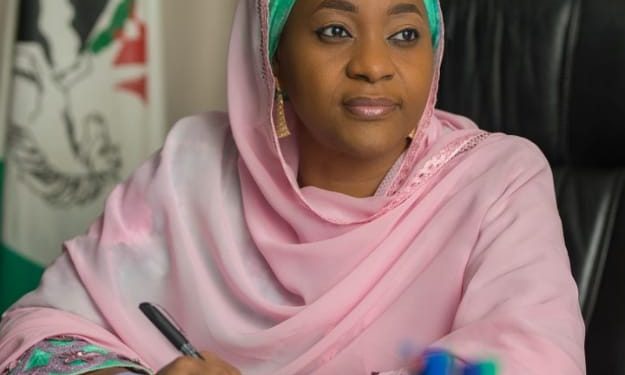The wife of Kebbi State Governor, Hajiya Aisha Bagudu, has called concerned authorities to be proactive in curbing the incessant attacks on schools in the Northern part of Nigeria.
Hajiya Bagudu, who is also the founder and initiator of Mass Literacy for Less Privileged and Almajiri Initiative (MALLPAI) Foundation, spoke in Abuja during activities marking this year’s International Literacy Day (ILD).
According to her, “the attacks on schools have become very worrisome and constitute a threat to the educational system.
She called on all stakeholders to support the government in addressing the problem, adding that “government alone cannot stop this.”The community needs to be involved and report instances of suspicious movements by these kidnappers.
”When you are walking with your own child, you will realise your child gets tired or will cry and somebody will even hear the child crying, but everybody is scared to mention.
“It is important to state that this is what is happening. If we do not get involved to tackle this problem, there is no way it will end.
“We must not continue to say the government is not doing enough or have to pay the ransom and keep quiet,” she said.
She also noted that COVID-19 had disrupted education at an unprecedented scale since Sept. 8, 2020.
“We are all government, we only have leaders, but we need to help each other, educate one child and you have done a lot for that family,’’ she said.
She identified lack of funding and investment in literacy projects as a major challenge, noting “sometimes people think because I am governor’s wife it is a pet project.’’
She said the foundation would carry out an awareness campaign from Sept. 17 to Sept. 18 in Abuja, to empower young people, women and the girl-child in the area of skills acquisition.
MALLPAI Foundation was established in 2009 with a core focus on revamping the problem of mass literacy alongside empowering youths, unskilled women, and girls’ children.
The ILD is celebrated annually on Sept. 8, globally to explore how literacy contributes to building a solid foundation for a human-centered recovery, with focus on interplay of literacy and digital skills.










